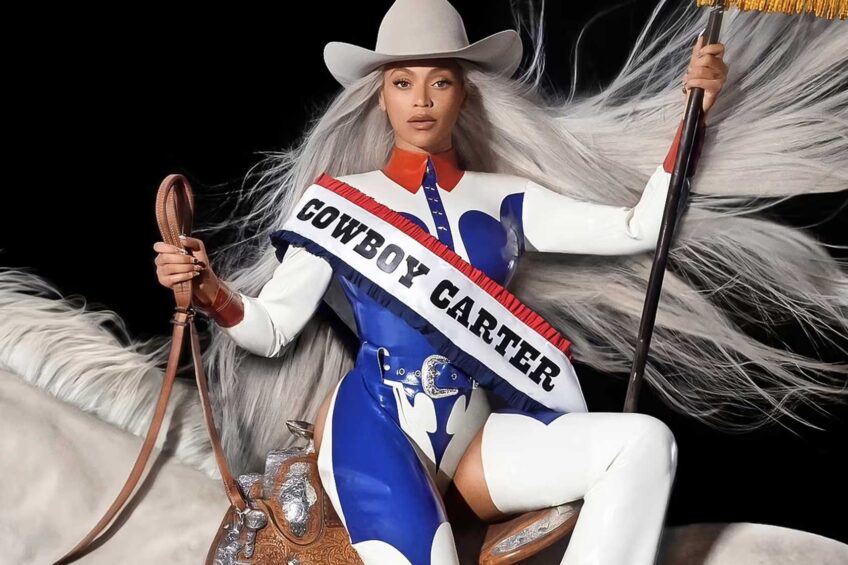Does Obama have to be better because he’s black?
A recent CNN poll appears to confirm what a majority of African Americans and a significant percentage of whites seem to think — that President Barack Obama will have to be better at his job than his predecessors because he’s black.
Loosely translated, this means that at Obama’s first screw-up, real or perceived, there will be howling along the lines of, “That’s what you get when you plop a black into any position that requires a brain and skill.” There’s a simple undercurrent coursing through this warped, race-tinged point of view: Blacks are expected to fail in important positions because they’re perceived to be grossly unqualified, having only arrived in those positions as the result of affirmative action policies or persistent white guilt.
Of course, this screwy rationale ignores the savvy, ability to think, preparation and/or education that often net African Americans top spots in corporations, universities, politics and other walks of professional life. Obama certainly had the right stuff to bag the biggest political prize of all, the presidency. The great what if, though, is would former President George W. Bush have bagged the grand prize if he had been black? The CNN poll doesn’t answer that. But it raises another question: Why have some observers set the bar so ridiculously high for Obama when said bar was virtually nonexistent for a mediocre white politician?
Obama is well aware that the old racial double-standards might be applied to him, too; that he will likely face a brighter, hotter spotlight than any president in American history; that there will be packs of voters who hope, even pray, that he flops; and that race will be the only reason why many of them will wish him the worst.
Surveys conducted during the presidential campaign found that even some of Obama’s most passionate backers engaged in racial gymnastics that separated their man from other blacks. Even as they raved about Obama’s political genius and hailed him as the right person to lead the U.S. out of the Bush morass, many still said that blacks were more crime-prone and less industrious than whites. A month after Obama’s triumph, not much had changed. A long-term study of racial attitudes by the National Academy of Sciences found that a significant share of Americans still see color as the major factor in determining who committed a crime and who was most likely to be poor.
Obama acknowledged the racial wariness of some near the beginning of the campaign when he said that there were some people who would not vote for him because he’s African American. He said the same thing again, albeit more subtly, in his triumphant speech on election night in Chicago’s Grant Park when he said that he wanted to reach out to those who did not vote for him.
During the campaign, the political stars aligned for Obama as they hadn’t for any other Democratic presidential candidate in a decade and a half. There was massive public fatigue from Bush policies, rage at Republican corruption and ineptitude, a laughingstock vice presidential candidate tailor-made for “Saturday Night Live,” a catastrophic financial meltdown and a crumbling economy.
There was also Obama’s backward stretch to keep race out of the campaign. The only time he truly dealt with the race issue was to tamp down public unease over the inflammatory tirades of his former pastor, the Rev. Jeremiah Wright. Despite the wealth of items on the plus side of Obama’s political ledger, a majority of whites — and that included a narrow percentage of young whites — did not vote for him.
But the presidential campaign is now a fast-fading memory, and for most Americans, whether they backed Obama or not, the major concern is: Can his policies work?
Now, that doesn’t mean that racial stereotypes, open or closeted, have magically vanished. But Obama is in the embryonic stage of his presidency, and few are willing to say anything about his style or program that can be remotely seen as having a hidden racial animus; it would simply be politically incorrect and crass to imply that Obama is not up to the weighty task of governance. Even hard-bitten conservative pundit William Bennett publicly, if lightly, rapped talk show kingpin Rush Limbaugh on the knuckles for ostensibly saying that he wants Obama to fail by disagreeing with fellow conservatives that say they hope the president succeeds.
The true test, though, will come when Obama stumbles (or appears to stumble) on a foreign policy or domestic issue, or if he takes a stance that angers his opponents. He’ll be lambasted for that; all presidents are. Criticism is a part of the job. Presidents know that, expect that and should even welcome constructive criticism. The difference is, America has never had a black president who has had to bear the brunt of criticism for missteps or blunders. Obama is the first.
Some critiques will be leveled based solely on whether or not the president’s policies and decision-making help advance the public interest. Others will come with a sneaky racial motive. Obama, sadly, will have to deal with both.
Earl Ofari Hutchinson is a syndicated columnist, author and political analyst.


![Banner [Virtual] Art Gallery](https://baystatebanner.com/wp-content/uploads/2024/04/Cagen-Luse_Men-at-store-e1713991226112-150x150.jpg)



